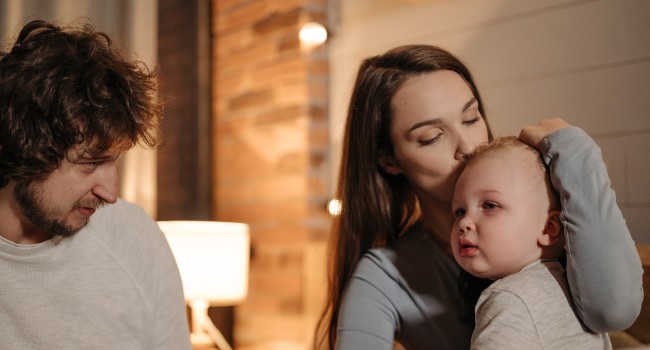How Does a New Boyfriend or Girlfriend Impact Child Visitation?

Moving on to a new romantic partner after a divorce can be such a cathartic feeling. However, having a child in the mix can seriously complicate things. Your new partner may be the opposite of your former partner, and they may not like that, as you both agreed on raising your child a certain way.
Even if you don’t have primary physical custody of your child, you have visitation rights, and your child will no doubt be in contact with your new partner. This situation is quite common. A family law attorney at Steele Family Law can help.
The Impact of a New Boyfriend or Girlfriend on Child Parenting Time
A new boyfriend or girlfriend isn’t grounds to lose custody or parenting time rights. However, if the new relationship or housing arrangement is dangerous to the child’s emotional development or physical safety, the court may restrict that parent’s custodial rights. It may mandate supervised parenting time, demand that visits occur in public or impose restrictions on who is permitted to be near the child.
The other parent can file a motion with the court requesting that custodial or parenting time rights be altered to suit the child’s best interest. This may result in a direct order from the court that the new partner is prohibited from being around the child.
If you’re worried that your co-parent may do this simply out of spite and jealousy, don’t be. A court order as serious as this is not typically handed down based on hearsay alone. The court may require witnesses and experts.
While the court may only restrict contact with the boyfriend or girlfriend, please note that an adverse inference could also be made regarding your parenting ethos if your new partner is a danger to the child.
What Are Visitation Rights?
The right of a noncustodial parent to see their child is referred to as visitation or parenting time.
In South Carolina, family courts award custody and parenting time rights based on the child’s best interests. When deciding on a custody agreement, the court handling the case has complete discretion and will weigh many factors. In South Carolina, unless it is proven to be contrary to what’s best for the child’s life, courts presume that it is advantageous for both biological parents to share custody or parenting time. Parenting time privileges may be granted to maintain a bond between the noncustodial parent and the child if custody is denied.
Custody and Parenting Time in South Carolina
The most typical parenting plan is one parent having primary physical custody of the kid and the other having parenting time rights. The child is mainly in the care of the primary caregiver throughout the year, with visits from the other parent allowed on alternate weekends, some holidays, and certain summer weeks. The parent with primary custody is almost always entitled to child support from the parent with parenting time.
Standard Parenting Time Schedule in South Carolina
It is uncommon to order supervised parenting time, and such orders are typically only made when the other parent is deemed unfit.
This is what a standard parenting time schedule looks like:
- Every other weekend starting on Friday at 6:00 pm, the noncustodial parent will have access to the child until Sunday at 6:00 pm
- Every other Wednesday, from after school until 8:00 pm, the noncustodial parent shall have the child
- The child must spend four weeks of summer vacation with the noncustodial parent
- Holidays must be rotated throughout the year and between even and odd years by the parents
The court now grants more generous parenting time schedules, including three-day weekends (from Friday to Monday morning), midweek afternoons, evenings, or overnights, and additional time in the summer. The court may occasionally provide per-week visitation, which gives both parents equally uninterrupted time with the kids. Parenting time arrangements may be made to accommodate the noncustodial parent’s working hours.
The guiding principle will always be whatever is in the child’s best interest. The court may decide that granting additional parenting time rights and a broader parenting time schedule is in the child’s best interests when the noncustodial parent can show that they are more involved in the daily raising of their children.
No Presumption That the Mother Has Physical Custody
Before “The Tender Years Doctrine” (S.C. Code 63-15-10) was abolished, mothers were always given custody of their young children. Now, this is no longer automatic. The mother and father are jointly responsible for the welfare and education of their child. They have equal authority, rights, and responsibilities, and neither parent’s right is prioritized over the other’s in any situation involving the child’s custody.
Our Location
212 N. Main St.
Anderson, SC 29621
GET DIRECTIONS
Speak to a Skilled Child Custody Lawyer in Anderson, SC
Navigating a child custody dispute might be among the most emotional matters that a local family court handles. A knowledgeable child custody lawyer could help you navigate this situation, help you consider your options, and give you the resources you need to make the strongest possible arguments on your behalf if you are in a situation like this. For experienced legal representation, contact Steele Family Law today.

